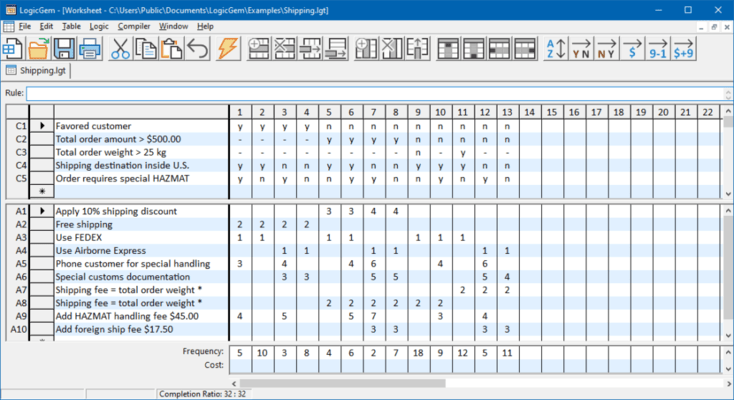LogicGem
Ein KI-fähiger Logikprozessor und ein Analysetool für Entscheidungstabellen.
Veröffentlicht von Catalyst Development Corp.
Wird von ComponentSource seit 2002 vertrieben
Preise ab: $ 191.10 Version: 4.0.0.4015 NEU Letzte Aktualisierung: Feb 21, 2024





